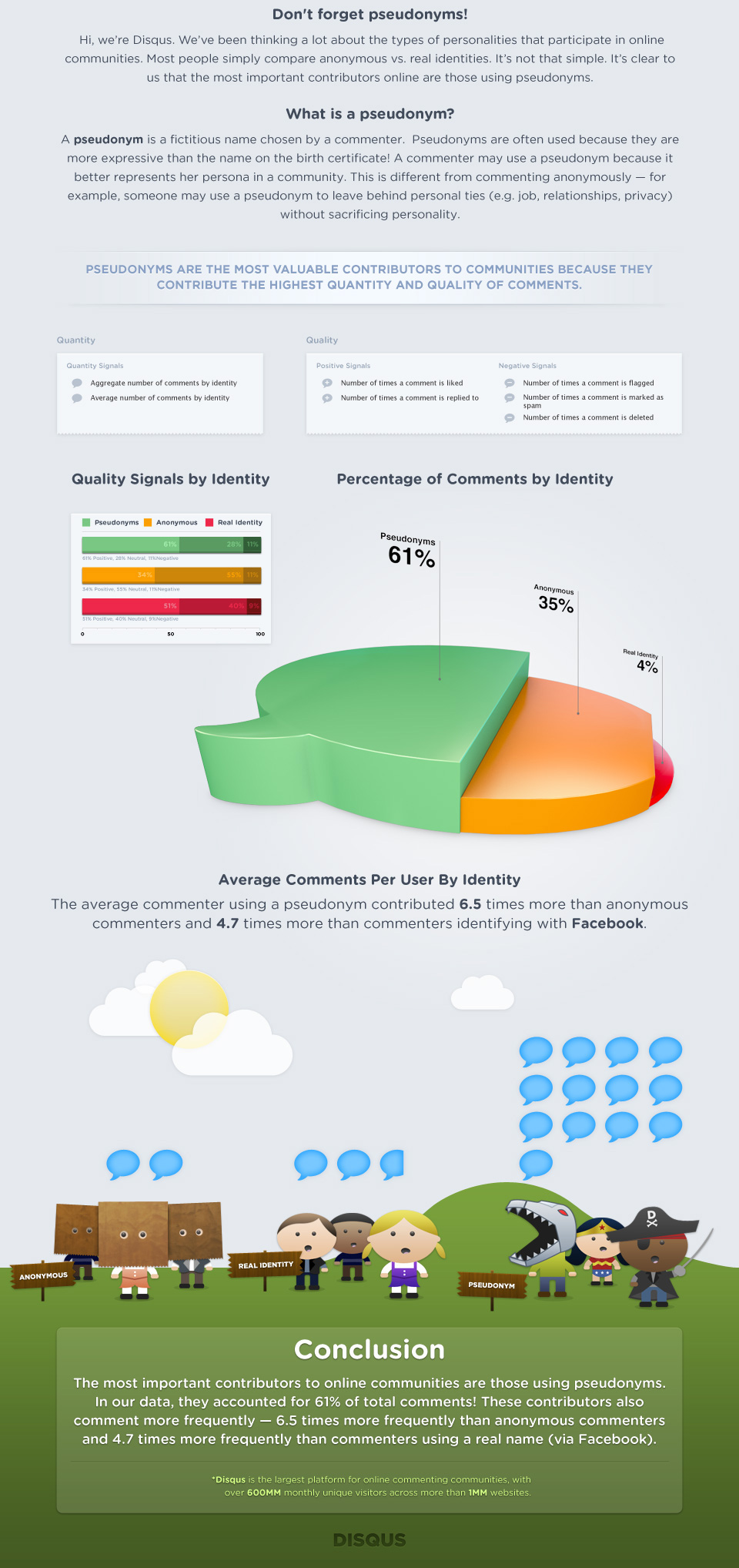Secure your place at the Digiday Publishing Summit in Vail, March 23-25

The Feed is Digiday’s Web-culture corner. Check The Feed everyday for Web-culture news roundups, infographics, essays and more. Follow us on Twitter for updates throughout the day @SWeissman.
While pro-real-namers say that pseudonymity encourages bad online behavior, new data from social commenting platform Disqus suggests otherwise.
The data shows that across sites that use Disqus, comments left by people with pseudonyms receive more likes and replies than those left both by people using only their real names and those who are completely anonymous. Furthermore, pseudonymous commenters make up the majority of comments: 61 percent of comments are made by users using made-up names. That is in comparison to 35 percent of comments left by anonymous users and only 4 percent by people using their real names. So much for real names!
See the full results from Disqus below.
More in Media

The case for and against publisher content marketplaces
The debate isn’t whether publishers want marketplaces. It’s whether the economics support them.

Urban Outfitters shifts its influencer strategy from reach to participation
Me@UO is Urban Outfitters’ new creator program leverage micro-creators with smaller, engaged communities that are passionate about the brand.

Media Briefing: Without transparency, publishers can’t tell if Google’s Preferred Sources feature benefits them
Six months in, Google’s Preferred Sources promises loyalty-driven visibility, but leaves publishers guessing at the traffic impact.






